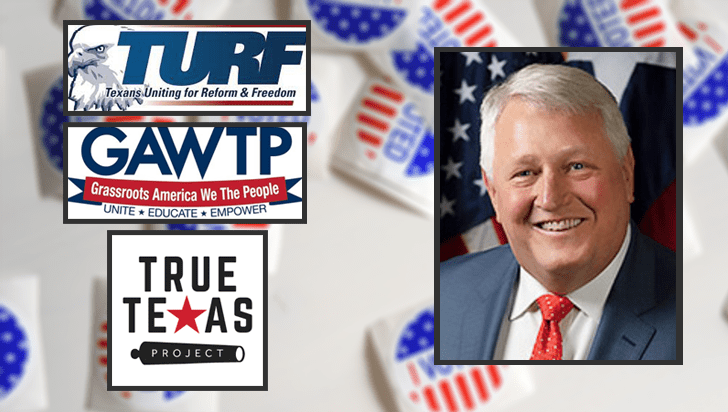On Thursday, Texans Uniting for Reform and Freedom (TURF), Grassroots America – We The People (GAWTP), and the True Texas Project (TTP) filed a lawsuit against the Texas Secretary of State John Scott, challenging the recently passed constitutional amendment known as Proposition 2.
The lawsuit alleges that the ballot language that was put before voters on November 2—and passed—failed to comply with common law requirements and was substantially misleading due to an omission of the phrase “ad valorem tax increases.”
Courts have previously ruled that ballot propositions be described with “such definiteness and certainty that the voters are not misled.”
Proposition 2 authorizes counties to issue bonds (debt) to fund infrastructure and transportation projects in underdeveloped, unproductive, or blighted areas.
A Similar Attempt Failed Previously
In 2011, virtually the same ballot proposition was put before Texas voters in the form of Proposition 4. Ultimately, it failed to get enough support to pass.
Upon the passage of Proposition 2 this time, Terri Hall, the founder and director of TURF, said:
The Legislature intentionally chose to mislead voters in order to get it passed this time around. Former House Transportation Committee Chair Joe Pickett even stated as much when [Proposition 4] failed in 2011. He cited the phrase “ad valorem tax increases” as the problem for voters. So, instead of abiding by what the voters decided, they chose to deceive voters, keeping them in the dark as to the tax impact.
Notably, Proposition 2 was the result of the Legislature passing House Joint Resolution 99 earlier this year. HJR 99 was authored by Democrat State Rep. Terry Canales (Edinburg), who is also the chairman of the House Transportation Committee.
Ballot Language Comparison and Vote Totals
Proposition 4 (2011)
“The constitutional amendment authorizing the legislature to permit a county to issue bonds or notes to finance the development or redevelopment of an unproductive, underdeveloped, or blighted area and to pledge for repayment of the bonds or notes increases in ad valorem taxes imposed by the county on property in the area. The amendment does not provide authority for increasing ad valorem tax rates.”
Vote Totals:
For – 270,610 (40.27 percent)
Against – 401,381 (59.73 percent)
Proposition 2 (2021)
“The constitutional amendment authorizing a county to finance the development or redevelopment of transportation or infrastructure in unproductive, underdeveloped, or blighted areas in the county.”
Vote Totals:
For – 931,453 (63.09 percent)
Against – 544, 834 (36.91 percent)
Texas’ Growing Debt Burden
The lawsuit also points out:
Texas has some of the highest property tax burdens in the nation. Among the 10 most populous states, Texas‘ local debt per capita ranks as the 2nd highest total, behind only New York. In light of these circumstances, Proposition 2’s omission of any mention of its relationship with local debt and property tax burdens misled voters about its chief features.
What Happens Next?
The length of ongoing litigation will delay the overall implementation of the passed ballot language.
The parties to the lawsuit are ultimately attempting to get Texas Gov. Greg Abbott to declare the election of Proposition 2 void based on any would-be favorable court ruling.





